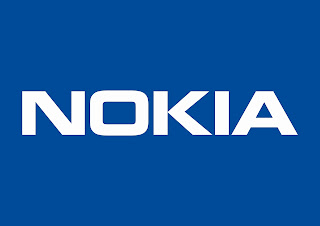Nokia today, 22 February, announced it has established the Telecom Infra Project (TIP) together with Facebook, Intel, Deutsche Telekom, EE, Globe, SK Telecom and other operators, equipment providers, systems integrator and technology companies from around the world. The overall target of TIP is to accelerate sustainable global growth of high quality, scalable and affordable telecommunications infrastructure by driving innovation in collaboration with the industry.
Nokia provides TIP with both experience and credibility from the mobile communication ecosystem. As a founding member of TIP, Nokia wants to promote transparency and open architecture, and explore new business models to improve people's lives through better connectivity.
The TIP promise is to simplify network and product architecture to gain higher performance, simpler network operation and increased automation. The industry will benefit from a growing ecosystem that will provide connectivity to places that previously were unconnected.
Nokia's planned contributions to TIP include publishing an open specification for the operability interface associated with the radio access run time environment, which traditionally is vendor specific. This open interface will allow development of innovative new radio solutions for new market segments, allowing operators to "mix-and-match" between vendors within a given end-to-end-solution.
The open interface will also enable innovation for faster and simpler cell site or node implementations that can be built and deployed by 3rd parties. This gives operators a simpler business model for building coverage where traditional deployments would not be economically feasible. In order to further encourage 3rd party participation, Nokia will provide a program to cross-check compatibility with the open interface.
Pending successful creation of the required TIP Project Groups, Nokia aims to provide an open base station hardware platform, and a reference design and hardware specification of it. The initial specifications are targeted to be available in the first half of 2016, and to be enhanced gradually. Nokia will provide components, modules or a reference platform, as well as complete base stations, to parties that want to build TIP Access Points.
Nokia provides TIP with both experience and credibility from the mobile communication ecosystem. As a founding member of TIP, Nokia wants to promote transparency and open architecture, and explore new business models to improve people's lives through better connectivity.
The TIP promise is to simplify network and product architecture to gain higher performance, simpler network operation and increased automation. The industry will benefit from a growing ecosystem that will provide connectivity to places that previously were unconnected.
Nokia's planned contributions to TIP include publishing an open specification for the operability interface associated with the radio access run time environment, which traditionally is vendor specific. This open interface will allow development of innovative new radio solutions for new market segments, allowing operators to "mix-and-match" between vendors within a given end-to-end-solution.
The open interface will also enable innovation for faster and simpler cell site or node implementations that can be built and deployed by 3rd parties. This gives operators a simpler business model for building coverage where traditional deployments would not be economically feasible. In order to further encourage 3rd party participation, Nokia will provide a program to cross-check compatibility with the open interface.
Pending successful creation of the required TIP Project Groups, Nokia aims to provide an open base station hardware platform, and a reference design and hardware specification of it. The initial specifications are targeted to be available in the first half of 2016, and to be enhanced gradually. Nokia will provide components, modules or a reference platform, as well as complete base stations, to parties that want to build TIP Access Points.


Learn how to answer the expected salary question confidently during job interviews. Discover strategies to research market rates, frame your response professionally, and negotiate effectively to ensure you align with the role's value and your goals.
ReplyDelete